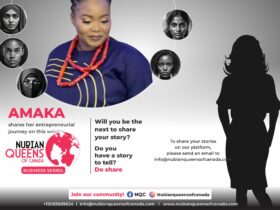Learning, Unlearning & Relearning; Taking responsibility for your career and growth – Funmi Adesanya
Gender disparity in cyber security is a harsh reality. The disparity begins with a significant gap in early education opportunities between boys and girls. This disparity translates into a 39% representation of women in the STEM workforce and an even lower 25% in cyber security.
This underrepresentation is further compounded by factors such as the wage gap, gender-based discrimination, a lack of women in upper management and leadership roles, and the struggle to balance family and work life.
However, women of colour in cyber-security and most tech-related careers experience challenges almost as soon as they are hired. These challenges include inadequate mentorship and support, salary inequities, and the need to be noticed for promotions and other advancements.
Despite all these odds, I chose a career in cyber security, which has been rewarding and fulfilling. I started my career in tech as a data protection officer, and from there, I grew into an information security management role, and then, in time, I became a cyber security consultant. This career progression was a unique experience for me. Based on this, I understand systems, procedures and policies and help organizations secure their systems, information and data. I have grown and thrived on this career path and am fulfilled having chosen it.
My name is Funmi Adesanya, and I have lived and worked in the UK for about 19 years. Life in the UK has been an adventure and a roller coaster. While the UK has the benefit of security lacking in Nigeria, there is a downside of heavy bills and even heavier taxes, for which the UK is known. This is coupled with the fact that the social life we are used to as Nigerians is practically non-existent here, and people tend to become lone rangers and learn to be alone, which has a negative effect on our mental health. Upon relocating to the UK, I was ecstatic and looking forward to a bright and happy future. In time, I embraced being a single mother, which added some challenges to my migration story, but overall, I am stronger and better, having surmounted many challenges. These successes have also helped boost my confidence and self-esteem and have made me more in tune with my inner self.
Reflecting on my journey, I would have loved to stay in Nigeria and try to make things work as best as possible. I would’ve come to the UK, studied, and learned the system. I would also have worked for a while and then taken this expertise back to Nigeria to contribute my quota to nation-building. I still plan on achieving this soon and urge migrants to always remember their home.
I advise women of colour to be strong and resilient because life in the UK is not a bed of roses. Women of colour should be focused on their goals and be ready to unlearn old patterns and thinking and relearn new skills to help us access better opportunities for the future. We should be prepared to study, work hard and work smart, and we should be ready to pay the price for success. The tech field is particularly challenging and competitive for women, but with dedication and focus, we can be masters in this space and be all we have ever dreamt of becoming.
Funmi tells her story from London, United Kingdom.












Leave a Reply